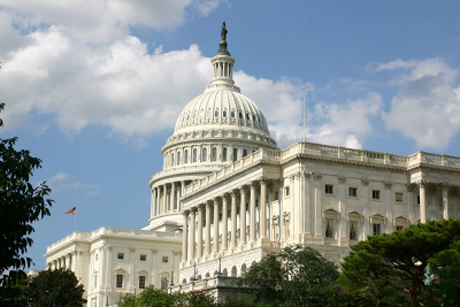Sequester could have a $28 million impact on Cornell
By George Lowery

The $85 billion in automatic, across-the-board federal spending cuts that went into effect March 1 - the sequester - may eventually cost Cornell $28 million universitywide, including Weill Cornell Medical College. The cuts would come mostly in support of research and student aid, administrators say.
The cuts - unless staved off by additional legislation - will be felt on a rolling basis.
The federal government sponsors 60 percent of Cornell research; the university received $466 million for research in 2012 (of which $162 million went to Weill Cornell Medical College). Sequestration cuts to the agencies that award grants would eventually reduce research funds to Cornell by about $24 million per year, which includes an $8.26 million cut to Weill Cornell.
President David Skorton wants the university community to bear in mind that the actual effects are conjectural at this point. "We are working with the relevant federal agencies to inform our planning," he said.
"Although the future is uncertain, it is my hope that with proper planning, we can minimize its negative impact on the university," said Joanne DeStefano, Cornell vice president for finance and chief financial officer.
The Budget Control Act of 2011 put the sequester in place, and Cornell has reached out to elected officials in Washington, D.C., and elsewhere to make its case against the sequester, said Stephen Philip Johnson, Cornell's vice president for government and community relations.
Johnson noted that he; Skorton; Dr. Laurie Glimcher, provost for medical affairs and dean of Weill Cornell Medical College; Lance Collins, dean of the College of Engineering; faculty members; and students have reached out to New York and federal elected officials to discuss the impact of sequestration.
"We argue that investment should be in research, student aid and keeping colleges and universities strong engines of economic development," Johnson said.
"Our goal with supporters is to strengthen their resolve and to try to make the case to those on the other side."
University funds would have to make up reductions to undergraduate financial aid. Cuts of $300,000 to undergraduate financial aid are expected to take place beginning in October. Graduate students may face reductions in their support, depending on how federal agencies make their cuts.
Mitchell Paine, president of the Graduate and Professional Student Assembly, and four other graduate students recently met with New York members of Congress in Washington. Three of the students receive National Science Foundation funding, one receives funds from the Environmental Protection Agency and one takes out federal loans; all of those agencies are subject to the cuts.
"We implored our members of Congress to take meaningful action, regardless of party or politics, to avert the sequester that would have drastic effects on one of the largest employers in upstate New York," Paine said. "I think that our actions brought graduate education to a higher level of attention in the offices we met with."
Cornell Cooperative Extension, which receives $11.6 million in federal funds, faces a 10 percent, $1.2 million, cut. CCE is reviewing applicable laws to determine which work is essential and what can be stopped. Among other steps to deal with the shortfall, CCE has suspended most out-of-state travel planned for later this year, put open staff positions on hold and is reviewing workforce reductions.
"We started our belt tightening last year in preparation for sequestration," said Helene Dillard, professor of plant pathology and CCE director. "The CCE leadership team has helped me identify ways to streamline as much as we can without reducing the quality of our work. We have very hard-working, dedicated staff, and we are doing everything we can to avoid workforce reductions."
Aid to the Cornell University Agricultural Experiment Station (currently $5.9 million) and to the New York State Agricultural Experiment Station in Geneva, N.Y. ($1.2 million) will be reduced. Both stations have been conservative in awarding federal money, said Margaret Ferguson, associate dean for finance and administration for the College of Agriculture and Life Sciences, and "we will be able to manage a 5 to 10 percent reduction by reducing expenditures over the next seven months."
The sequester also calls for a 2 percent, or $1.2 million, cut in Medicare reimbursement to the Weill Cornell Physician's Organization, funds that indirectly support Weill Cornell Medical College.
Media Contact
Get Cornell news delivered right to your inbox.
Subscribe